#CarSales
Report: U.S. Automotive Market in Rough Shape
The U.S. light-vehicle market doesn’t appear to be in the best health. While many automakers now opt against issuing monthly sales reports, those that still do are posting some pretty brutal numbers.
This does not bode well for an industry that seemed pretty certain that 2022 would be its recovery year. However, it is on-brand with the slew of announcements made by manufacturers warning about supply constraints and an inability to manufacture at scale. There has also been a growing sense that some consumers may be shunning vehicles that have spent the last several months trading well above what seems rational. Wholesale pricing actually declined by roughly 6 percent since the January record. Though you may not see that represented on dealer lots or even have noticed if it was because last month still saw transactions averaging 14 percent higher than they were last year.
Mega Dealerships Continue Consolidating Strength
If you frequent this website, there’s a good chance you’ve seen an article discussing how smaller car dealerships are being incorporated into larger entities over the last few years. As with most other industries, the trend has been accelerating and Automotive News just shared the metrics showing how far we’ve come over the last decade. According to the report, consolidation among mega dealers has made heaps of progress of late and should continue on with their mission of never-ending growth because none of them want to become the little guy after every pint-sized showroom has been bought up in North America.
IIHS Study Suggests Buyers of Used Vehicles Learn Less About Their Car
The Insurance Institute for Highway Safety (IIHS) is claiming that individuals shopping for a secondhand automobile end up learning less about the modern features lurking within their automobiles. Considering salespeople have meetings about how best to hype the advanced driving aids in new models, this one really shouldn’t have required a survey for the IIHS to piece it together. But the outlet appears to be attempting to link this alleged lack of knowledge to make claims that it’ll somehow contribute to the probably of used vehicles being involved in a crash.
“Used car buyers were substantially less likely than new car buyers to know about the advanced driver assistance features present on their vehicles,” stated IIHS Senior Research Scientist Ian Reagan, the author of the study. “They were also less likely to be able to describe how those features work, and they had less trust in them. That could translate into less frequent use, causing crash reductions from these systems to wane.”
Industry Braces for Increased Volumes, Lower-Margin Vehicles
It’s a little early in the year to say anything definitive about 2022 vehicle volumes, however, the automotive industry has been signaling that production numbers should begin to rise in the coming months. While that sentence should be cause for a sigh of relief, there are parts of the industry that might not feel as good about it as you probably do.
With supply chain problems having drastically limited vehicle production during the pandemic, many dealers opted to price their goods well above anything that could be considered normal. This worked out poorly for many of the smaller outfits as larger retailers enjoyed record-breaking profits in 2021. Some manufacturers also benefited financially, as the chip shortage allowed them to prioritize their highest-margin products. Unfortunately for them, 2022 is likely to bring affordable vehicles back into play and gradually pull pricing closer to something approaching normality.
Lincoln Now Sells More Product in China Than U.S.
After years of Ford unsuccessfully trying to court the Chinese market in the same way General Motors did, Blue Oval has finally hit an important milestone. For the first time ever, the Lincoln luxury brand has achieved more sales in China than in the United States.
On Thursday, Lincoln announced that it had delivered more than 91,000 vehicles in China in 2021 – representing an increase of 48 percent increase against 2020. Meanwhile, the brand managed to lose ground in North America with just 86,929 sales for last year. That’s the worst Lincoln has seen in over a decade, though the company has basically witnessed its share of the U.S. market seesawing in the wrong direction since the 1990s.
Second-Hand News: GM Investigates the Used Car Biz
Seeking to capitalize on a red-hot used vehicle market, General Motors has said it will launch an online service called CarBravo. Intended to challenge the likes of Carvana and CarMax by offering customers access to a large inventory of machines in stock at GM dealers across the country.
Early 2022 Auto Sales Forecasts Are Disheartening
After a tough couple of years, consumers went into 2022 hopeful that unhinged automotive pricing and lean dealer lots would be a thing of the past. However, analysts and industry groups have gone from being cautiously optimistic just a few weeks ago to fairly sullen about the prospects of North American shoppers locating anything that could be considered a square deal.
Goldman Sachs recently issued a report that attempted to encapsulate the whole picture, citing sustained congestion at the ports, pandemic-related factory closures, market inflation, millions of people just dropping out of the workforce, and continued complications stemming from the semiconductor shortage. It estimated that vehicle pricing would fail to go down — and may even pitch up in the first half of 2022 — until all of the above issues have been addressed. But it was hardly the only group chiming in or suggesting that the hard times could last through 2023, as the goalpost for what should be deemed acceptable is moved yet again.
Auto Dealers Report 2021 Profits Will Break Previous Record
With so many articles discussing how poor automotive sales have been through 2021, one could be forgiven for thinking this was going to be a hard year for anybody owning a dealership. However, the reality of the matter is that it’s a seller’s market and those who can sell are making a killing off everyone else’s misery.
The National Automobile Dealers Association (NADA) has reported that the ongoing deficit of product has helped the average store rake in more money than they did in 2020, breaking the previous twelve-month profitability record. Today’s average dealership is reporting a net pretax profit of about $3.38 million through October for 2021. That’s more than twice what was tallied within the same timeframe last year and really goes to show how much money can be made when the customer’s needs are the only items being discounted.
December Auto Sales Still Looking Weak
While the official figures haven’t dropped, just about every outlet tracking new vehicle sales is projecting a significant decline in volume for December 2021. Showrooms have been trending toward the minimalist aesthetic since 2019 with the pandemic kicking things into overdrive as supply bottlenecks nullified practically every manufacturer’s ability to produce anywhere near its normal pace.
Last December was bleak, with sales falling by around 5 percent for the month as the typical transaction price for automobiles set new records. The U.S. market only saw 1.54 million sales, the lowest volume witnessed since December of 2014. But 2021 volumes are shaping up to be decidedly worse. This month is on track to fall by anywhere from 23 to 30 percent with retail sales barely cresting 1 million units as transaction prices for both new and used vehicles surpass all previous metrics.
Study Shows Auto Dealer Sentiment Still Ridiculously Positive
Car dealers have been polled for the fourth-quarter Cox Automotive Dealer Sentiment Index (CADSI) and they’re still incredibly optimistic, despite losing some of their earlier confidence that new-vehicle sales would be relatively healthy.
The dealer optimism – especially among franchised entities – seems to be wholly tied to profitability here. New vehicle sales dropped in 2019 and absolutely cratered in 2020 due to the nation’s response to the pandemic. In spite of there being plenty of talking heads in the news media telling you not to stress about the economy, inflation has created pricing increases across the board and automobiles are at the tippy top of that list. With inventories remaining relatively lean due to production slowdowns, staggering dealer markups have become the norm. Basically, stores just seem happy that they can charge more per car while they’re in short supply. But they’re also starting to have concerns about the long-term viability of the market and are are feeling the pinch of rising operating costs.
You Gotta Take the TruCoat: Toyota Customer Alleges Dealer Bad Behavior
No one reading this will assert the current environment is anything but a seller’s market. Numerous vehicles are being hawked for many thousands (in some cases, tens of thousands) over sticker and a vast amount of machines are pre-sold before they arrive at dealerships on the back of a hauler. And all that assumes there are any rigs to be had at all.
One customer north of the border is alleging they have been denied the opportunity to buy a vehicle unless they also agreed to take roughly $3,000 worth of warranties and rustproofing. The dealer, of course, denies it all.
Average Automotive Pricing Window Continues Shifting Upwards
Now that fuel prices are popping off and it’s becoming glaringly obvious that we’re falling into another recession, one would hope that automakers would be prioritizing their more economical models. Unfortunately, most manufacturers operating in North America spent the last decade culling the smallest models from their lineup. Domestic brands took the practice so far that several no longer offer traditional cars, opting instead for compact crossover vehicles yielding higher price tags and broader profit margins. Foreign brands were only marginally more reserved with the ax.
This has helped move the average vehicle transaction price beyond $42,000 in the United States, according to Edmunds, with used rates sitting somewhere around $28,000. Though the cause isn’t entirely down to there being a complete lack of econoboxes on the market. Increased regulations and the industry’s newfound obsession with connectivity/tech have also increased pricing. But it doesn’t change the fact that we’re now confronting a situation where almost nobody is selling the kind of small, affordable vehicles that cater to shoppers needing to be thrifty right when they really need them.
AutoNation Wildly Profitable While Car Prices Are Grotesquely High
With automobile prices ballooning to egregiously high levels, one might assume that the industry would be in rough shape. But they’d be dead wrong. Supply chain disruptions have actually created a captive market where consumers are desperate to lay their hands on whatever products are available. In the automotive realm, this has allowed retailers to set ludicrous prices and rake in larger profits per transaction. While inflation may eventually catch up to these entities, the gravy train is currently parked at the station and dousing big business with its warm, brown effluence.
Nobody knows this better than the folks at AutoNation. Because the company just released a quarterly profit report that blew its rosiest projections out of the water. Net income its ongoing operations was $361.7 million for Q3 2021, double the $182.6 million witnessed in Q3 of 2020, while revenue rose 18 percent to $6.4 billion.
UK Vehicle Registrations Fall Into Bottomless Pit
Despite manufacturers still managing to turn a profit, the automotive sector hasn’t been in the best of health these last few years. Growth appears to have plateaued in most Western nations, encouraging companies to cater this business toward other markets, supply chains have also been negatively impacted by the pandemic — with semiconductor shortages hindering production schedules on a scale we’ve not seen since the Great Recession.
It’s a bad situation and rumored to get worse if the warning cries of economists are to be believed. But there’s also mounting evidence to support their claims. The Society of Motor Manufacturers and Traders (SMMT) recently reported that vehicle registrations in the United Kingdom fell by roughly 35 percent in September vs the same timeframe in 2020. This is relevant because the month typically represents the second-busiest period for the country and numbers were already low due to production stops created by coronavirus lockdowns.
Penske & Cox Premiere AI Based Auto Sales Platform With Confusing Name
Years ago, waiting for a haircut, dental appointment, or psychological evaluation meant thumbing through a paperback filled with local listings of automobiles you had convinced yourself you might be in the market for. While primarily an exercise for wasting one’s time, there was always a chance you’d run to a payphone or whip our your Nextel to contact the seller so you could begin the delicate dance of commerce.




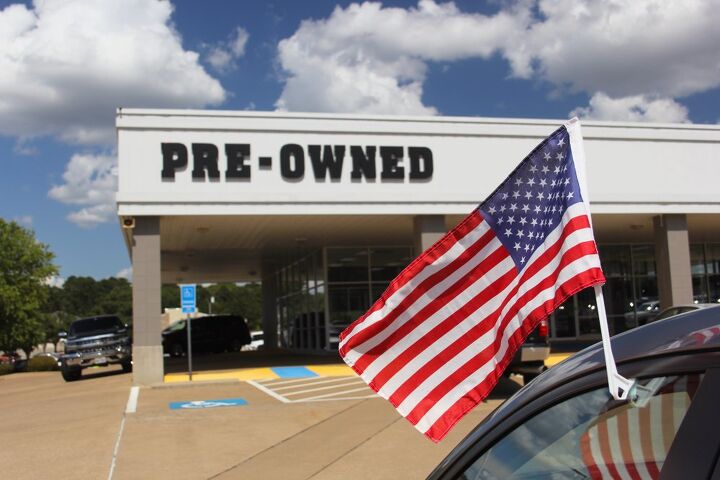
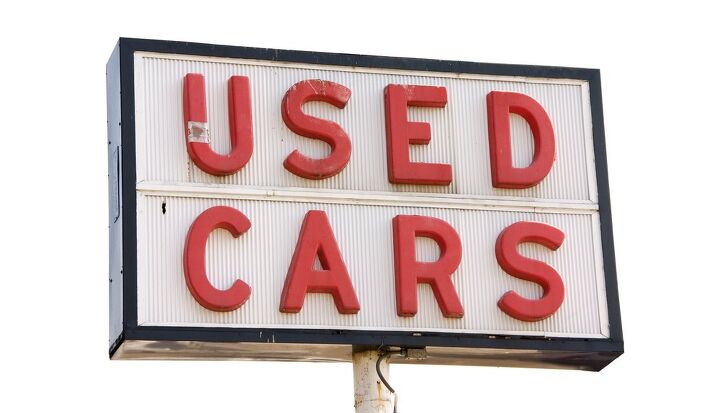

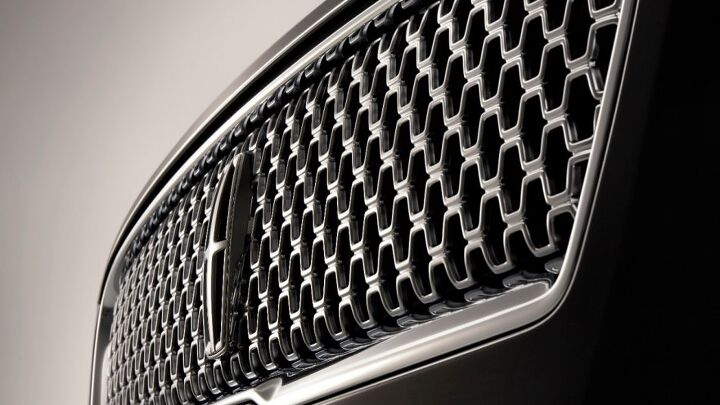
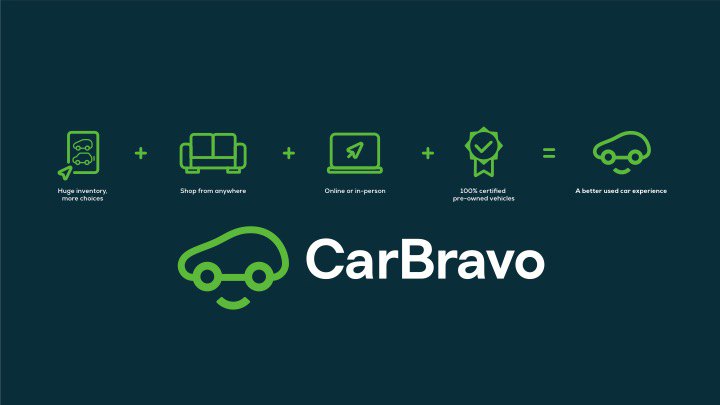
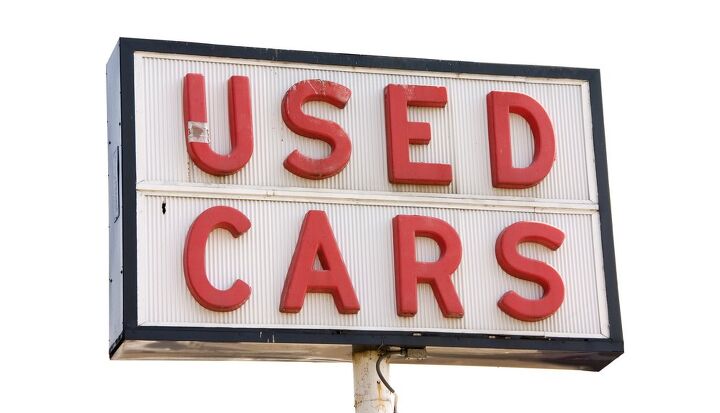

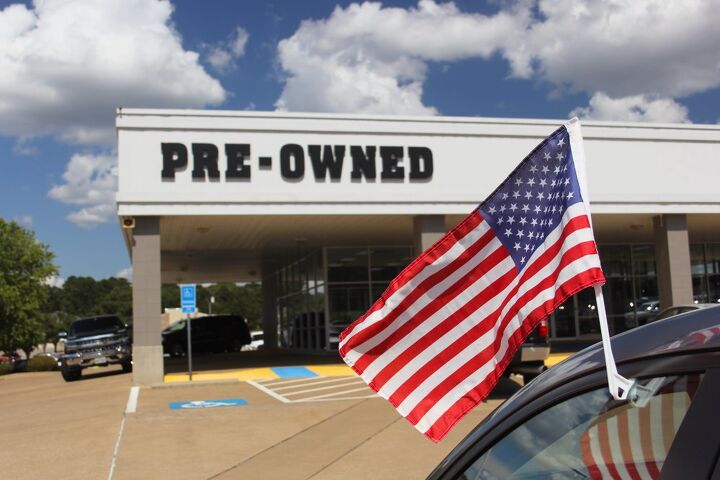

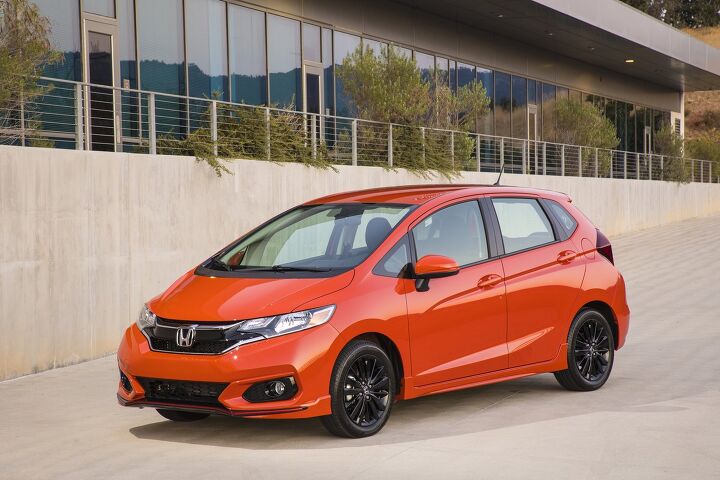












Recent Comments